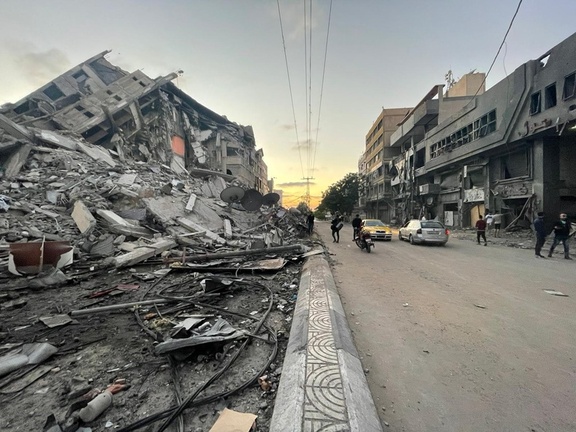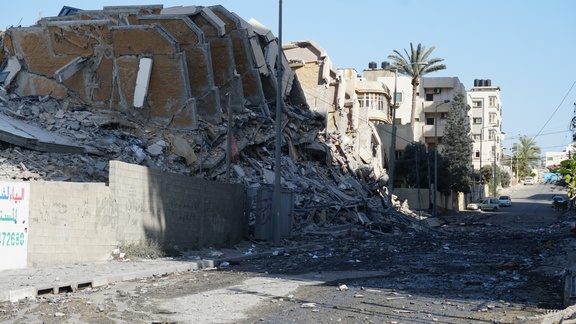Jerusalem is preparing for a different Easter than usual, full of the great pain that has struck the entire Holy Land this year. The situation caused by the clashes that began on 7 October last year has generated a gigantic humanitarian crisis in Gaza, due to the bombing and the blockade of aid imposed by Israel.

Particularly dramatic is the story of members of some families in Gaza who, before the war, had obtained permission to bring their children suffering from rare cardiovascular diseases to the hospital in Tel Aviv. On October 7, they were banned from re-entering the Strip, and have been stuck in the West Bank for months. They are shreds of families, siblings, parents and children separated by war. "Now we struggle to even get in touch with our relatives, they have no electricity or internet connection. We don't know which of them is still alive." These are the words of one of them who lost 4 children under the Israeli bombings and will never be able to hug them again. Two children run to the terrace of the offices of Pro Terra Sancta in Bethlehem and wave to the Israeli warplanes that noisily fly through the sky of the city, heading towards Gaza, towards what remains of their home. "Nothing remains of our city, only a pile of rubble. We lost our homes, our jobs, our families." It is difficult for these families to continue to lead their lives despite being far from home, despite the fact that we no longer have a home to return to.
The pain with which this Easter is charged is also expressed by the words of Sister Nabila Saleh, an Egyptian Catholic religious who has been living and working in Gaza for thirteen years at the Rosary Sister School. Nabila has been stuck under Israeli bombardment for months now , without the possibility of receiving any kind of humanitarian aid either for herself or for the 650 people sheltered in the facility: "Right now we need everything and we don't get anything, any kind of car. 90% of the Christian community has lost their homes due to the bombings, children have lost their schools, adults have lost their workplaces. There is no future for us here." Among the people stranded in the complex are many elderly, children and frail people who need all kinds of assistance in order to survive, assistance that they cannot receive at the moment.
"There is not a single safe place in all of Gaza, not even the building where we took refuge is." In recent months, bombings have hit all kinds of structures: homes, hospitals, markets and schools. Rosary Sister School itself has been hit several times, turning one of Gaza's most beautiful schools into a pile of rubble, destroying what Sister Nabila had built in 13 years of mission. "I don't think the situation will ever get better," he says with despair.

Despite the destruction and death, the nun did not lose hope: "The really beautiful thing about these days is faith in God and in his Providence. Despite the Way of the Cross that we are experiencing, we are sustained by the faith that after our death we will have the Resurrection, as we were promised by Jesus Christ who in turn, like us here in Gaza, has suffered great suffering." And from these words of Nabila transpires the awareness that all the pain she is going through is not in vain.
The situation is difficult throughout the Holy Land, but Sister Nabila, without hesitation, affirms: "There is room in my heart for forgiveness from those who are doing all this to me and my community." And so the exhortations to peace made by His Eminence Pierbattista Pizzaballa in the speech given at the Catholic University on the "Need to think about peace in the Holy Land" take shape: "The two disciples of Emmaus, ... they see the glorious wounds of Christ, and only in the light of these do they understand their wounds and return to the Holy City. They meet with the 'Wounded Healer', Jesus Christ, who heals their wounds with his wounds. Even our personal wounds [...] can be transformed into an opportunity for a greater understanding of the wounds of others and into instruments of help and salvation on their behalf." And only in this way does Easter, despite all the pain with which it is charged this year, become an opportunity to look at one's own wounds as a fruitful gift capable of bringing forth forgiveness, just as Christ's wounds are a symbol of God's mercy for men.


















